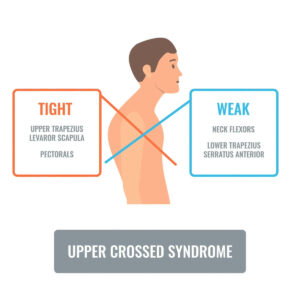Free download: Top 10 Natural & Easy Remedies for Joint Pain from Home. Learn these helpful remedies.
Estimated Reading Time: 7 minutes read
A painful shoulder is bad enough, but when it affects your ability to get a good night’s sleep, it can be miserable.
There’s actually been a notable correlation between shoulder pain and poor sleep quality. Usually, a poor night’s sleep will most certainly worsen your pain.
Certain sleeping positions have been found to help provide pain relief more than others.
So, what is the best sleeping position for shoulder pain and what other factors can contribute to nighttime shoulder pain?
Table of Contents
Painful Shoulder Conditions
Let’s first take a look at which shoulder conditions may contribute to shoulder pain and cause night pain.
- Shoulder impingement syndrome
- Shoulder osteoarthritis
- Subacromial bursitis or other shoulder bursitis
- Rotator cuff injuries
- Frozen shoulder
These are just a few of the most common types of non-surgical shoulder injuries that can cause shoulder pain while sleeping.
Consulting with your medical doctor or physical therapist for conservative treatment of your shoulder pain will likely include a discussion about your sleeping position and habits, especially if you’re experiencing shoulder pain at night.
Best Sleeping Positions for Shoulder Pain
If you like sleeping on your back or sleeping on your side, we can work with these positions to help you sleep comfortably. You may just have to make a few positional adjustments.
1. Back Sleepers
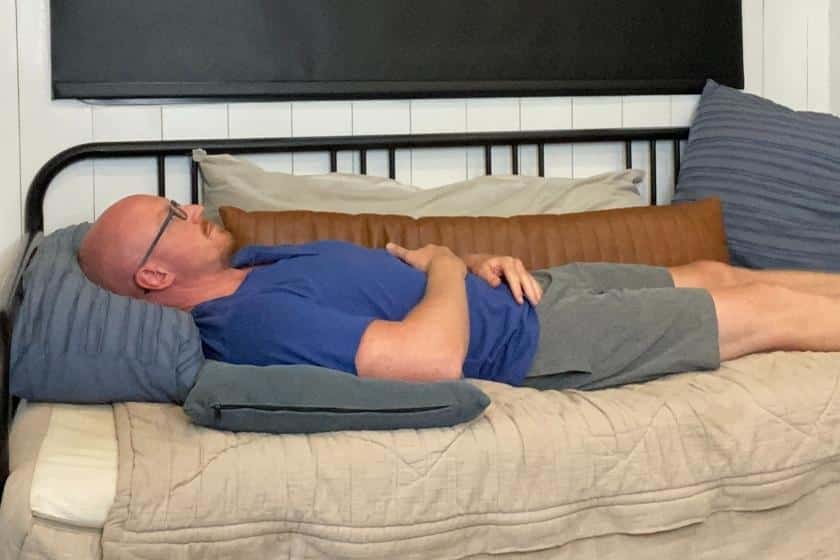
When sleeping on your back, if your arms are positioned directly next to you and by your side, they may appear to be in a neutral position; however, they technically aren’t.
You’ll notice when you try this position that the shoulders are actually in a little bit of extension.
The trouble with this is that remaining in this sleeping position all night has the potential to irritate the front of the shoulder, seeing as when the arms are in an extended position, no matter how big or small, this places a stretch on the front of the shoulder.
Additionally, the shoulder isn’t considered to be the most supported in this position. Keeping this misaligned position all night could create a shoulder ache.
Alternative option
If you’re a back sleeper, consider placing a small pillow under the painful shoulder and arm. This will provide better support for the shoulder and keep the arm in a more neutral position.
2. Side Sleepers
Side sleeping can be hit or miss with shoulder pain.
If you’re having unilateral shoulder pain, side sleeping could be a possible sleeping position for you.
Normally it’s recommended to avoid sleeping on the injured shoulder. Laying all night on the affected shoulder with direct pressure and your full body weight on it puts unnecessary stress and strain on the arm.
Not only this, but it can also potentially impact blood flow and create nerve impingement. If a nerve is impinged, you’ll normally feel pins and needles when you wake up.
If you’re trying to sleep on your better side, keeping the painful arm tucked directly next to you or even stretched in front of you still has the potential to keep you from getting a good night’s rest.
These positions are still not considered neutral and will contribute to shoulder pain.
Alternative Option
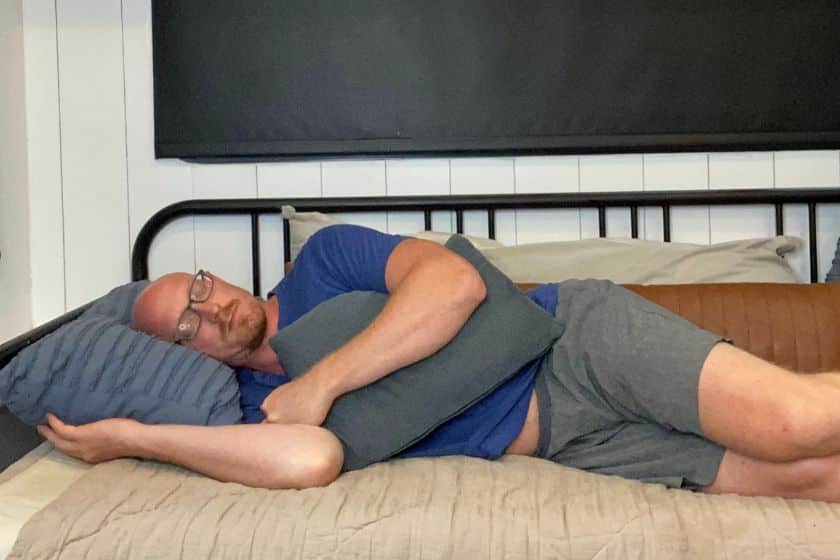
When laying on your side, definitely avoid sleeping on the affected shoulder.
When sleeping on the other side though, keep a pillow tucked under the arm as if you’re hugging it. This will provide better support and is considered a more neutral sleeping position.
Sleeping Positions to Avoid for Shoulder Pain
It’s important to not only note the best sleeping positions for shoulder pain, but also the ones you want to absolutely make sure to steer clear of.
1. Stomach Sleeping
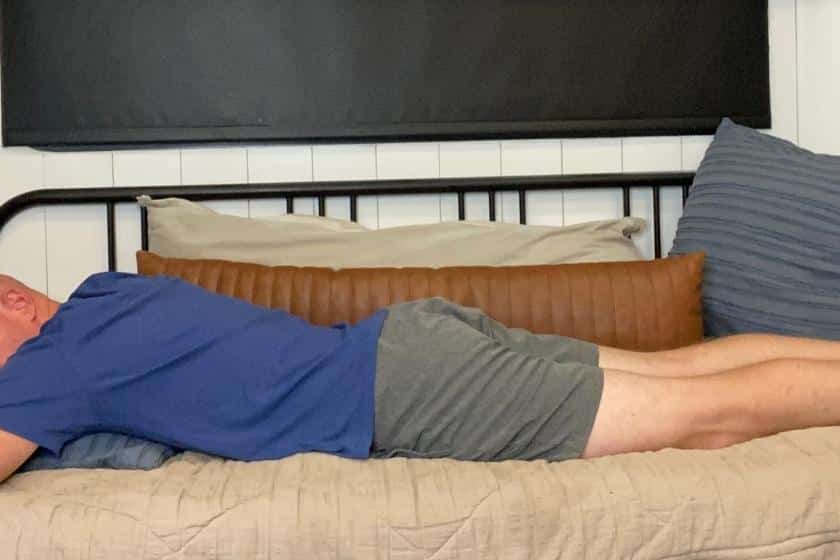
For you stomach sleepers out there, unfortunately, there’s no good way to really make stomach sleeping a great position for shoulder pain.
Stomach sleeping not only isn’t recommended for shoulder pain, but also for neck and back pain. The whole body is placed in an abnormal position and alignment, placing excessive stress and strain on multiple joints.
Usually if you’ve slept on your stomach all night, you’ll wake up feeling generally stiff, which will include an achy shoulder.
2. Arms Overhead
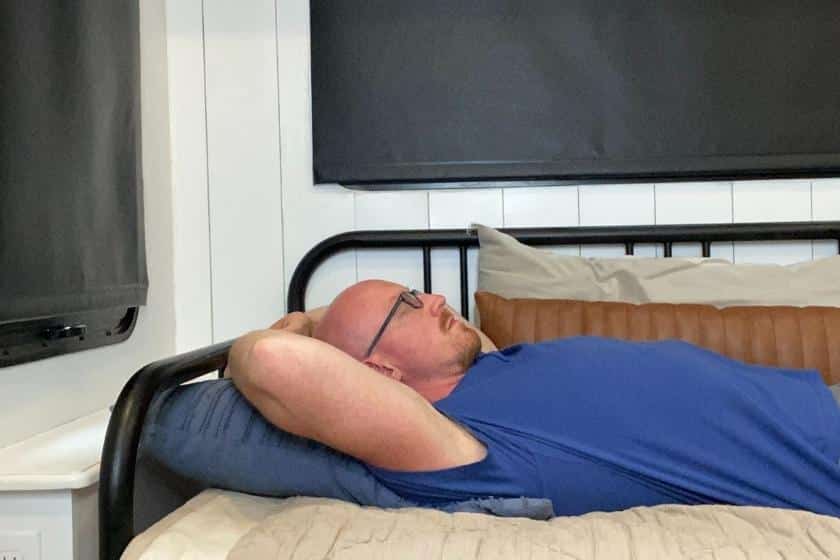
Sleeping with the arms overhead, no matter which position it’s in (e.g., back, side, or stomach), just isn’t recommended.
It can place the shoulders in a position that encourages rotator cuff impingement and impingement of the nerves.
It’s been found that some may naturally lean towards sleeping with their arms overhead while on their back to improve breathing quality while sleeping.
If this is the case, it’s important to follow up with your medical doctor to investigate what could be impacting your breathing in the first place.
Other Factors to Consider
While positioning of the shoulders at night can have a positive or negative effect on shoulder pain, there are some other additional factors to consider that could also be affecting your shoulder pain.
1. Spinal Alignment

It’s important to remember that every part of the body is connected. Poor alignment and positioning of one area has the potential to negatively affect another.
If any or all of the spine is not receiving the right support while sleeping, this can absolutely affect shoulder pain.
Check that you’re keeping the spine aligned when going to sleep, no matter which position you’ve decided to sleep in.
2. Type of Pillow

This ties back in to promoting the right spinal alignment while sleeping.
The wrong pillow, whether it be too thick, too thin, too soft or too hard, can potentially place the neck and upper body in an abnormal and awkward position.
Seeing as shoulder mobility and placement is connected to these areas, shoulder pain could be worsened if sleeping with the wrong pillow.
3. Type of Mattress

Studies have been found that suggest the surface you sleep on will affect pain. If your mattress is uncomfortable and not supportive enough, this will contribute to a lack of support on and around the shoulder, therefore, contributing to shoulder pain.
Finding the right mattress can definitely be a challenge. You want to make sure it’s not too soft or hard, but a medium balance.
It’s recommended to try purchasing a mattress you’ve tested out in the store, but also has a return window in case things don’t work out after using it for a longer period.
Ready to Catch Some Zzzz’s
If you’re experiencing a poor night’s sleep because of shoulder pain, hopefully these tips will help you find some relief.
Keep in mind not only what the best sleeping positions are for shoulder pain, but also which positions to avoid, positioning of other areas that may affect the shoulders, your pillow and mattress.
With these in mind, you’ll be getting a good night’s sleep in no time!
FAQ:
What position should I sleep in if I’ve just had shoulder surgery?
If you’ve just had shoulder surgery, it’s good to discuss sleeping positions with your surgeon and physical therapist.
Generally, absolutely avoid sleeping on the surgical side. Try to stay on your back with pillow support under the surgical arm. Your surgeon may recommend initially for you to sleep in a sling to protect the tissue.
What’s the best mattress for shoulder pain?
The same mattress won’t work for everyone, but like most things, try to find the right balance for you. A mattress that is either too soft or too hard may not provide the right support for the shoulder. Instead, try to find middle ground between the two, but always use what feels most comfortable and supportive for your own body.
Should I see my doctor if I’m having shoulder pain at night?
If you’re having persistent shoulder pain (not caused from an injury or trauma) and have tried the above methods for relief but they’re not working, consider seeing your doctor for a consult. There may be more going on that needs professional assistance and a referral to a rehab specialist.













